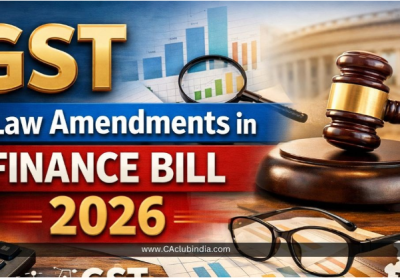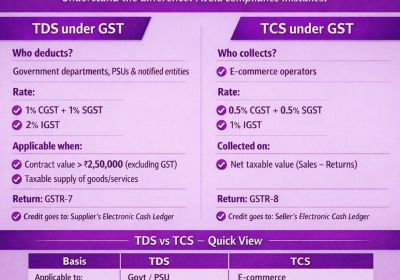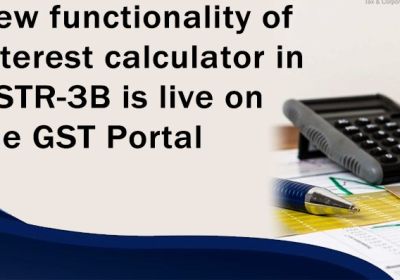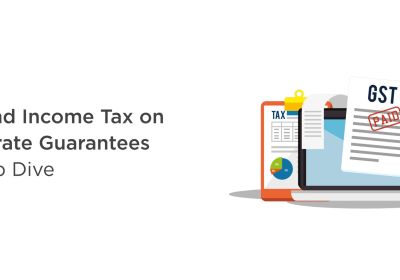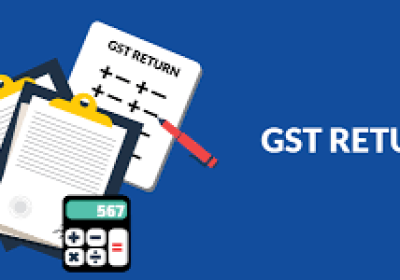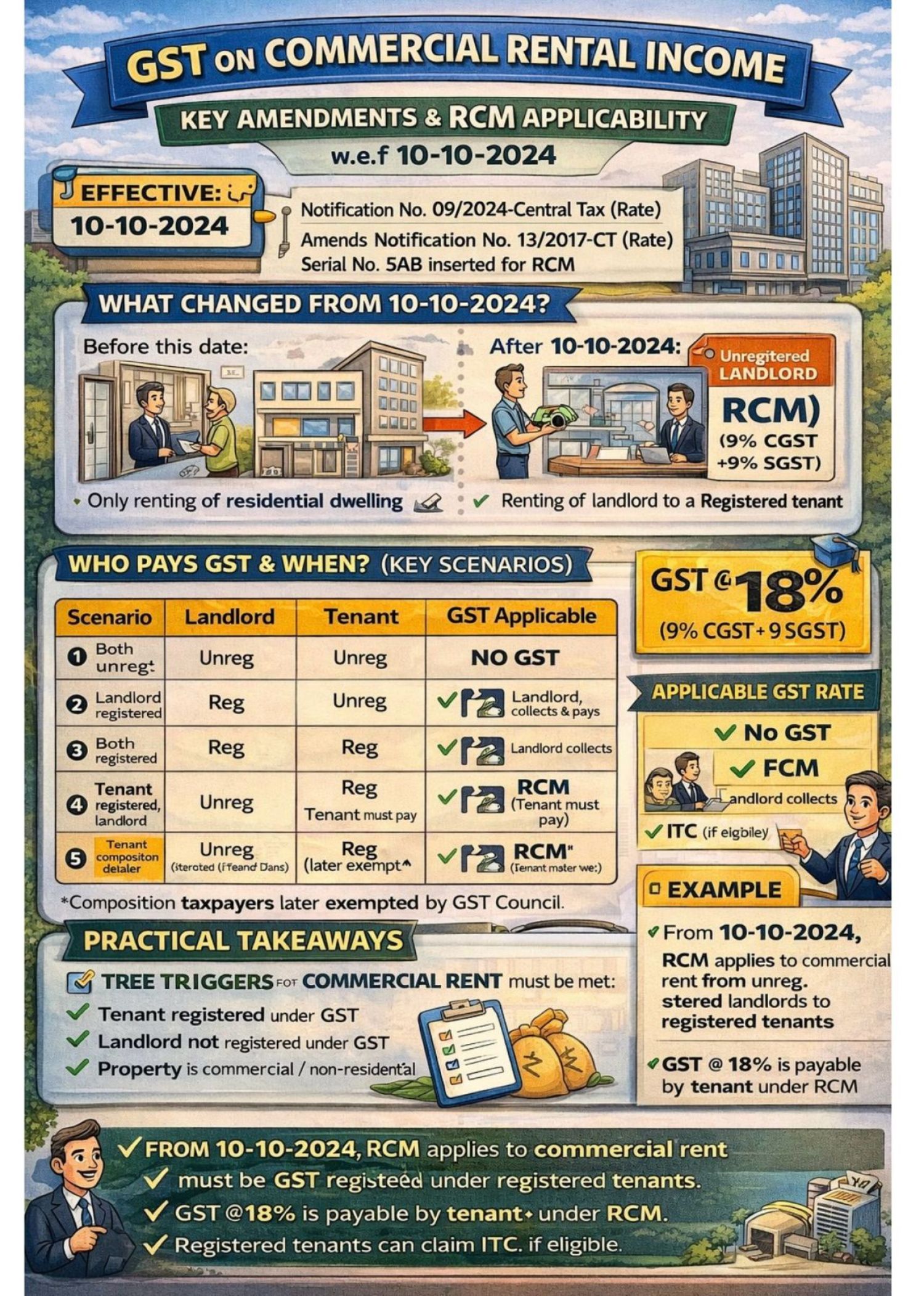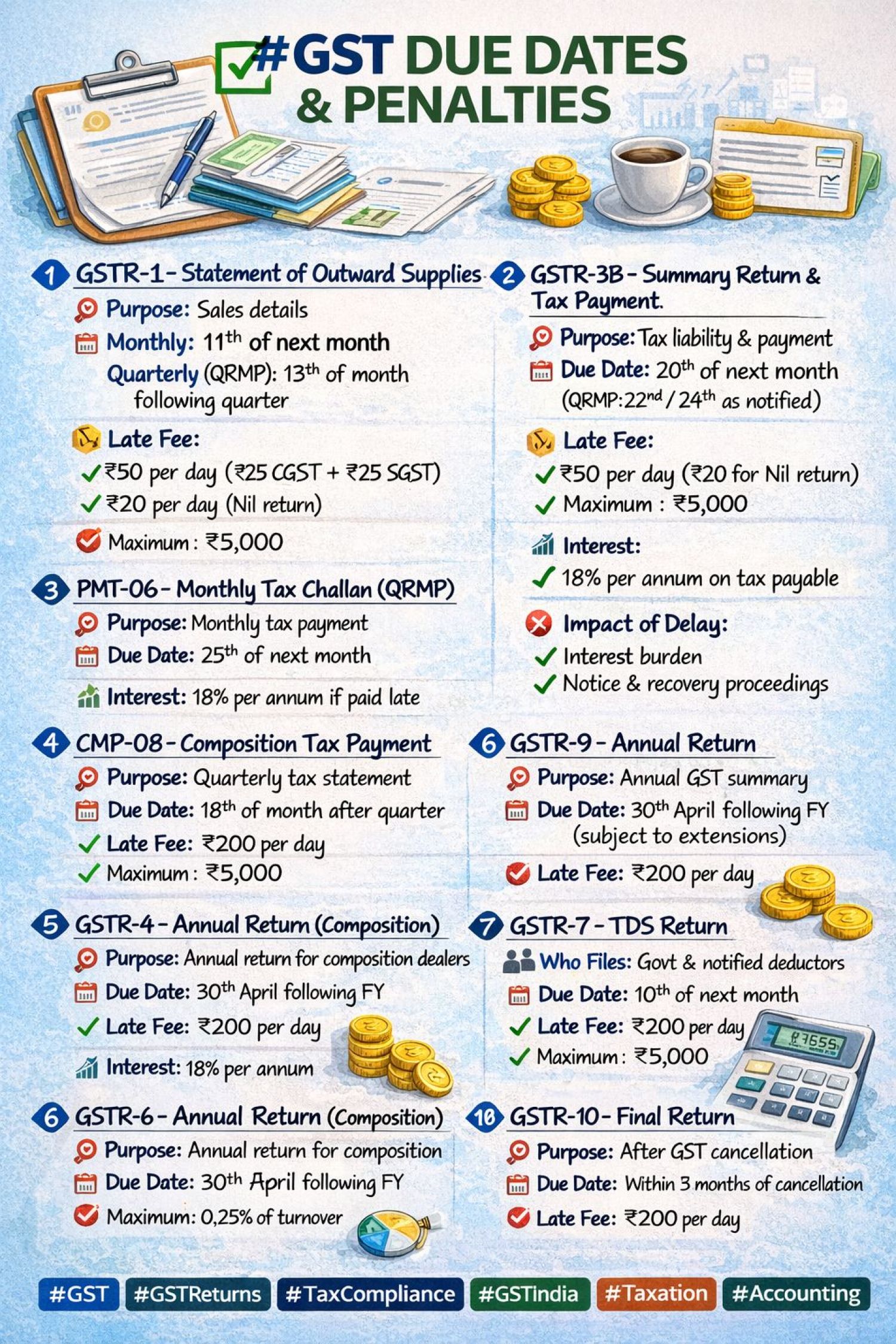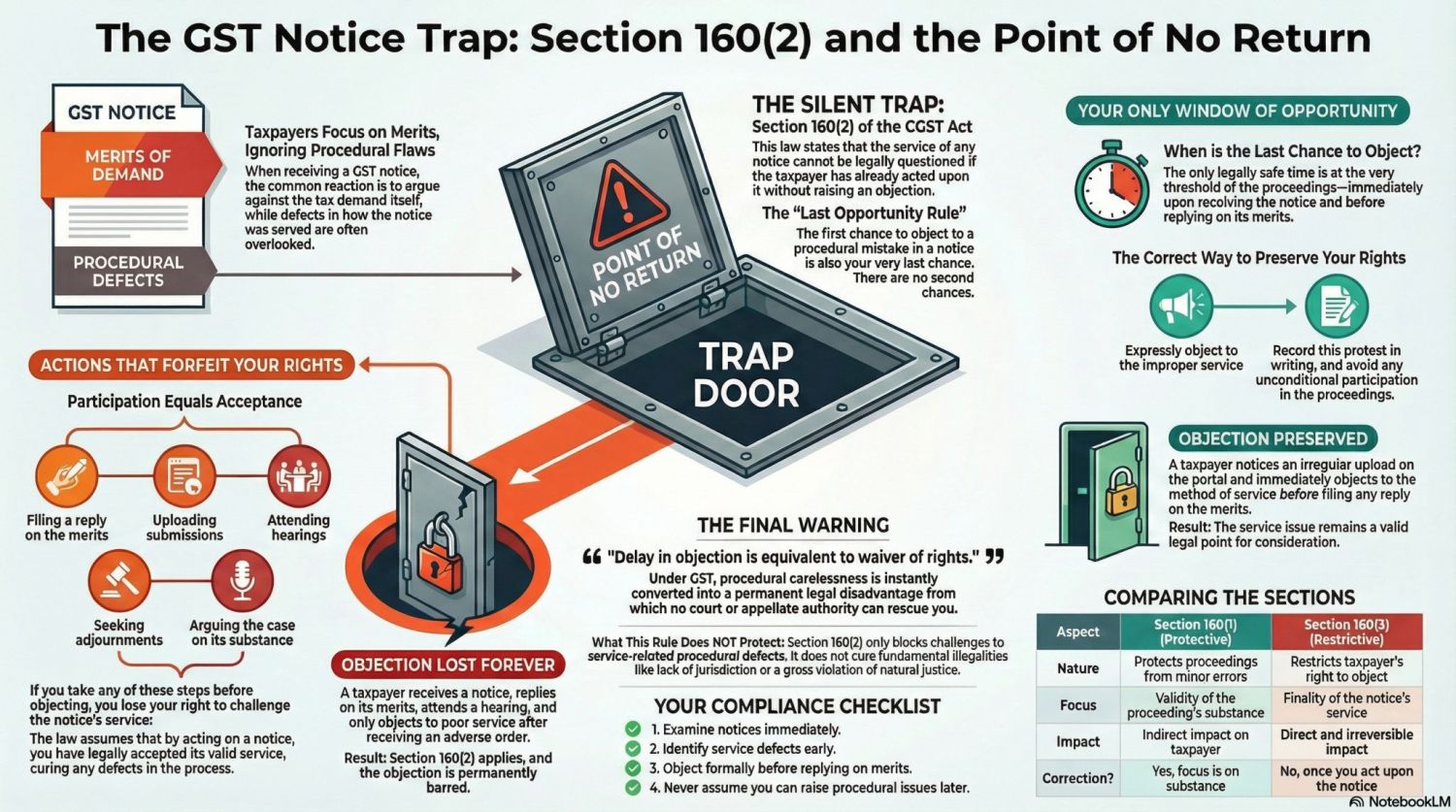Table of Contents

No GST Audit Required in New Budget 2021
On 1 February 2021, Finance Minister Nirmala Sitharaman delivered the 2021 paperless budget. FM also announced several improvements to the tax system on goods and services to target helping small and medium businesses to overcome pandemic disruptions. Relevant GST changes carried out in the Finance Bill 2021 are as below:
- No GST audit is required as a major change to GST in the Finance Bill 2021. Clause 101 of the Finance Bill notes to section 35(5) of the CGST Act being omitted to eliminate the mandatory requirement to have the annual reports audited and the reconciliation statement provided by the specified Professional.
- Furthermore, Section 44 of the CGST Act is substituted in Clause 102 of the Finance Bill in order to eliminate the mandatory obligation to furnish a statement of reconciliation properly audited by a specified professional and to allow for the filing of the annual report on the basis of self-certification. It also allows for the exemption of the Commissioner from the obligation to file the annual return of a class of taxpayers.
- An additional new provision Section 7(1)(aa) of the CGST Act, adopted retrospectively with effect from 1 July 2017, has provided in Clause 99 of the Finance Bill to ensure that tax is imposed on activities or transactions involving the supply of goods or services by any individual, other than an individual, to his or her members or constituents or vice versa, for cash, deferred payment.
- As a result of the amendment in section 7 of the CGST Act, provision 7 of Schedule II to the CGST Act is omitted retroactively, as per clause 113 of the Finance Bill with effect from 1 July 2017.
- Under clause 130 of the Finance Bill, section 50 of the CGST Act is being amended. In retrospect, it is revised to substitute the proviso in sub-section (1) with a view to charging interest on net cash liabilities with effect from 1 July 2017.
- A new provision section 16(2)(aa) of the CGST Act introduces Clause 100 of the Finance Bill to provide that the input tax credit on invoice or debit notes may be used only if the details of such invoice or debit notes have been issued by the supplier in the outward supply statement and such details have been communicated to the recipient of such invoice or debit notes.
- Under clause 105 of the Finance Bill, an explanation for sub-section (12) of section 75 of the CGST Act is given to explain the 'self-assessed tax' shall comprise the tax payable in respect of outward suppliers, the particulars of which have been furnished in accordance with section 37 but not contained in the return furnished in accordance with section 39.
- Section 83 of the CGST Act is amended to ensure that the provisional connection shall remain effective for the whole period beginning with the commencement of any proceeding pursuant to Chapter XII, Chapter XIV, or Chapter XV until the expiry of the period of one year from the date of the order rendered pursuant to that proceeding, as stated out in subsection 106.
- Clause 104 of the Finance Bill in Section 74 of the CGST Act provides an amendment to make the seizure and confiscation of goods and transportation in transit a different procedure from the recovery of tax.
- Under clause 107, a provision is added to section 107(6) of the Central Goods and Services Tax Act, 2017 to provide that no appeal against an order made defined in section 129(3) be filed unless the appellant has paid an amount equal to 25% of the penalty.
- Clause 111 of the Finance Bill amends Section 168 of the Central Goods and Services Tax Act, 2017 to allow the jurisdictional commissioner to exercise the power to request information pursuant to Section 151.
- Under Provision 108 of the Finance Bill, Section 129 of the Central Goods and Services Tax Act, 2017 is amended to de-link the proceedings referred to in that section related to the detention, seizure, and release of products and conveyances in transit from the proceedings referred to in Section 130 relating to the confiscation of goods or conveyances and the penalty levy.
- Section 130 of the Central Goods and Services Tax Act, 2017 is amended by Clause 109 in order to delink the Proceedings according to the section concerning the confiscation of goods Or transfers and penalty levies from the cases subject to Chapter 129 on the detention, seizure, and discharge of merchandise and transportation conveyances.
- As stated in Clause 110 of the Finance Bill, Section 151 of the Central Goods and Services Tax Act, 2017 is replaced by authorizing the jurisdictional commissioner to seek information from any individual about any matter dealt with in connection with the Act.
- Under Clause 111 of the Finance Bill, Section 152 of the CGST Act is amended to ensure that no information obtained subject to Sections 150 and 151 can be used for the purposes of any proceedings under the Act without giving the individual concerned an opportunity to be heard.
- Furthermore, there is one more addition to the IGST tax defined under Section 16, which is being amended according to Clause 114 in order to amend it.
- The zero rates of supply of goods or services to a developer of the Special Economic Zone or to a Special Economic Zone Unit shall be done only where such supply is intended for authorized operations;
- Restrict the zero-rated supply of Integrated Tax payments to a notified class of taxpayers or notified supplies of products or services only; and
- In the event of the export of goods, the foreign exchange remittance is linked to a refund.
Basic Reasons for delete the GST Audit provision in Budget 2021
One significant change to the GST in Finance Bill 2021 is that no GST audit is mandated. Clause 101 of the Finance Bill provides that Section 35(5) of the Central Goods And Services Tax Act, 2017 is omitted in order to remove the legal requirement for annual accounts to be audited and a reconciliation statement to be filed by an authorized professional.
In addition, Section 44 of the CENTRAL GOODS AND SERVICES TAX ACT, 2017 is replaced in Clause 102 of the Finance Bill in order to remove the legal requirement to provide a reconciliation statement duly audited by a designated professional and to provide for the filing of an annual return on a self-certification ground. It also provides for the Commissioner to exempt a class of taxpayers from the prerequisite to submit an annual return.
Reason for the elimination of the GST Audit according to the GST Council Minutes Extract from page no. 133.
Filing GSTR-9 (Annual Return) & GSTR-9CC (Reconciliation Statement) : (Part 5A (vi) of the agenda)
- There was a huge amount of negative feedback about the filing of the annual return & Statement of reconciliation for Financial Year 2017-2018. A lot of the feedback is on how the IT portal works.
- The deadline date for filing of Annual Return i.e GSTR-9 (Annual Return) & GSTR-9CC (Reconciliation Statement) was extended 7 times in the FY 2017-18
- It has also been stated that the rate of compliance for the filing of Annual Return i.e GSTR-9 (Annual Return) & GSTR-9CC (Reconciliation Statement) was high, especially for smaller taxpayers, as this process requires the involvement of a tax professional (CA & CWA) who reportedly continues to insist that they should be engaged throughout the year for the entire compliance management process, thereby increasing the compliance cost.
- Additional tax is seen to be approximately INR 3176 Crores (INR 2079 Cr. In cash) and INR 575.76 Cr. interest was collected from the GSTR-9 -Annual Return.
- Additional revenue from the Auditor's recommendations based on GSTR-9C 011 was comparatively low at INR 392 Cr. (In cash, INR 261 Cr.) & INR 81.16 as interest.
For the last 4 years, taxpayers have filed GSTR-9C for 2 consecutive years, i.e. 2017-18 and 2018-19. In October 2020, the Confederation of GST Professionals and Industries (CGPI) filed a writ petition to the Bombay High Court to extend the deadline for submitting GSTR-9/9C in the context of the coronavirus disease outbreak. After hearing the petition, the Bombay High Court called on ASG to appear and tell them how the Indian Govt intends to solve the issue for the interest of the people.
Post Amendment for Annual Return and GSTR 9C and know about its impact
a. Annual returns on Form GSTR-9 / 9A will be voluntary for taxpayers with an annual turnover of less than Rs 2 crore;
b. Taxpayers with a yearly total turnover of more than Rs 5 crore will be required to provide a reconciliation statement in FORM GSTR-9C.
c. Instead of having the reconciliation statement (GSTR 9C) approved by Chartered Accountants / Cost Accountants, taxpayers would be able to self-certify it.
It will raise management accountability and responsibility because he will no longer be able to claim that a mistake occurred because he did not receive sufficient guidance. Self Certification, on the other hand, is just as troublesome as Self Medication.
Notes : Important issue in filling GST Audit Filling Form 9C under the GST
For more information about Finance Bill 2021: Click here to Download PDF

